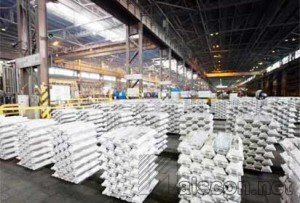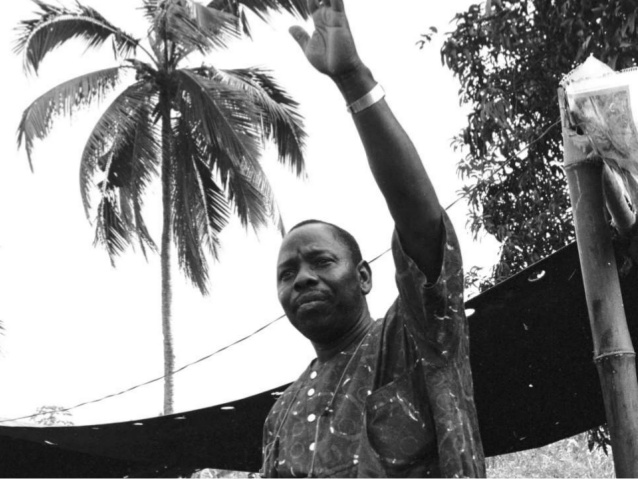•Owed N781bn by govt agencies, others •Regular power supply still a mirage •Gencos, Discos reel under heavy debt burden
 Chuks Isiwu & Kunle Kalejaye
Chuks Isiwu & Kunle Kalejaye
09 November 2016, Sweetcrude, Lagos – Private investors in Nigeria’s power sector are counting their losses rather than gains three years after the sector was handed over to them by the Federal Government in a privatisation programme that saw the investors taking over assets of the defunct state power monopoly, Power Holding Company of Nigeria, PHCN. The move was aimed at moving the sector away from the cycle of non-performance, which the PHCN represented, to the efficiency of private sector operators, by so doing, ensuring improved and sustainable power generation, distribution and revenue collection that were absence under PHCN.
The government officially turned in the power sector to the private operators on November 1, 2013, with the exception of the transmission segment which government retained under the Transmission Company of Nigeria, TCN, with the Canadian company Manitoba as the managing contractors.
Assets and beneficiaries
Up for sale under the privatisation programme conducted by the Bureau of Public Enterprises, BPE, were the 11 PHCN distribution companies, namely Abuja, Benin, Eko (Lagos), Enugu, Ibadan, Ikeja, Jos, Kaduna, Kano, Port Harcourt and Yola Discos. Six power generation companies were also put up for sale – Afam Power Plc, Egbin Power Plc, Kainji Hydro Electric, Sapele Power, Shiroro Hydro Electric and Ughelli Power Plc.
And the beneficiary companies included KANN Consortium, which acquired Abuja Distribution Company or Abuja Disco; Vigeo Limited, which acquired Benin Electricity Distribution Company; West Power and Gas, which bought over Eko Disco; NEDC/KEPCO bought Ikeja Electric while Sahelian Power SPV got the Kano Electricity Company. Also, Integrated Energy Distribution and Marketing Company acquired both Ibadan and Yola Discos, Interstate Electrics got Enugu; Aura Energy got the Jos Disco while four power consortium, comprising Bayelsa, Rivers, Cross River and Akwa Ibom state governments acquired the Port Harcourt Disco.
In the generation segment, Femi Otedola’s Amperion Ltd acquired Geregu I Generation Company, Transcorp/Woodrock Consortium bought over Ughelli Power firm while Mainstream Energy Solutions got Kainji and Jebba Generation Company.
North South Power acquired the Shiroro generation plant and Sahara Energy Resources acquired the Egbin Power Station in Lagos.
Failed objective/Power supply mirage
Despite the successful privatisation of the power sector, the aim of the move which is to bring efficiency to bear in the running of the sector and the generation, transmission and supply of quality electricity nationwide appears to have been defeated. Power generation has failed to reach the national installed capacity of 6,000 megawatts, transmission has been largely unimpressive while distribution or supply has failed to meet the aspiration of consumers. In fact, the dream for a steady power supply has become a mirage.
Amid these, the power companies are complaining of several challenges, that, according to them, have made attainment of set targets impossible.
Observers say the power firms have failed to make necessary investment in facilities to upgrade their operations and ensure improved power generation, transmission and distribution.
The power companies, however, argue that they have been battling with financial losses as a result of pipeline vandalism, poor capacity utilisation, non-cost recovery tariff, among others.
Privatised problems
Three years post-privatisation, the power generation and distribution companies claim they are being owed billions in debts by customers, rendering them incapable of meaningful progress. Chief Executive Officer, Association of Nigerian Electricity Distributors, an umbrella body for the Discos, Mr. Azu Obiaya, said that as at July this year, the Discos were being owed a total N568 billion by private homes, businesses and government ministries, departments and agencies.
Obiaya also stated that Discos now record an average monthly revenue shortfall of N38 billion because of the debts owed them by consumers, including the government ministries and departments, as well as a tariff regime that is not cost reflective.
According to Obiaya also, the electricity market’s revenue shortfall had risen to N809 billion and has been projected to hit N1 trillion by the end of the year.
ANED Executive Director for Research and Advocacy, Mr Sunday Oduntan, on his part, maintained that the challenges bedevilling the Nigerian Electricity Supply Industry, NESI, three year after privatisation led to the shortfall in market revenue, stating that non-cost recovery nature of the tariff had a direct impact.
He explained that under the performance agreement for the sector, the Federal Government agreed to a cost reflective tariffs from the beginning which never happened as Residence Two, R2, customer class were politically frozen in 2015, leading to a loss of over N300 billion to the Discos in December same period.
“The current electricity market revenue shortfall is projected at N1 trillion by December 2016 caused by a direct impact of the non-cost recovery nature of the tariff,” Oduntan said.
Oduntan added that the delay in reflecting costs in the power sector meant a growing increase in deficits for investors and that the sector was no longer bankable as banks were unwilling to lend the Discos and Gencos funds to inject in critical capital assets. “Banking sector is over exposed to oil, gas and power sector to the tune of over three trillion naira,” he said.
Other challenges bedevilling the sector, according to Oduntan, include regulatory uncertainty, inadequate gas supply to generating plants, vandalism of gas pipeline, neglect of aging turbines, limited transmission capacity, non-payment of electricity bills by customers and government agencies, energy theft, and limited access to finance.
He urged the Federal Government to implement total cost recovery, improve transmission capacity, increase funding in the sector, assist in curbing energy theft, ensure access to forex and uninterrupted gas supply as requisites to improve the current state of the power sector.
Catalogue of losses
The Eko Electricity Distribution Company Plc, EKEDC, has spent over N1.44 billion on projects expansion to boost electricity supply to customers in the last three years.
“Over N1.44 billion had been spent on various projects expansion within the company to boost electricity supply to customers in the last three years,’’ EKEDC Chief Executive Officer, Mr Oladele Amoda, said.
But, Amoda stated that the company currently had a funding gap of N900 billion due to high rate of foreign exchange as he lamented that government’s policies on foreign exchange have made international lenders sceptical about extending credit to the power industry in the country.
He also disclosed that as at July this year, Federal Government Ministries, Department and Agencies, MDAs, owed the company over N11 billion in unpaid electricity bills.
He also calculates that his company was losing about N2.5 billion monthly to the inability of the generation companies to produce enough electricity to supple his company in addition to over N50 million being lost monthly to electricity equipment vandalism within its network.
The Kano Electricity Distribution Company Plc, KEDCO, said it has lost equipment valued at N108.83 million to vandals in its franchise area while on a monthly basis.
The Benin Electricity Distribution Company, BEDC, revealed recently that it was being owed N1.8 billion in unpaid electricity bills by customers while Ibadan Electricity Distribution Company, IBEDC, said it was owed N5.9 billion by customers, especially the military and government’s MDAs.
Regarding energy theft, the Enugu Electricity Distribution Company, EEDC, loses as much as N2 billion monthly while Port Harcourt Electricity Distribution Company, PHED, said it has so far lost over seven million kilowatt-hours of electricity to direct power theft, an equivalent of over N238 billion.
According to Senior Communications Manager at the Yola Electricity Distribution Company, YEDC, Adamawa State, Mr Kingsley Nkemneme, the company was losing over N150 million monthly due to Boko Haram insurgency in the North-eastern region of the country.
Expressing concern over malicious damage to its equipment, Ikeja Electric declared recently that damage to its transformers, installations and other equipment has cost it N11 million in the last 18 months.
Gencos and govt debt
Government’s exclusion from the generation and distribution chain in the power sector, being operated by private investors meant that the sector should be driven by profit. However, government and it agencies now owe these operators hundreds of billions of naira. It specifically owes the generation companies through the Nigerian Bulk Electricity Trader, NBET, which purchases power from them (the generation companies).
The GENCOs are being owed N213 billion by the government, covering the period November 1, 2013 to January 31, 2015, while a second segment of debt is the shortfall during the transition electricity market, TEM, between February 1, 2015 to date, which is yet to be disclosed by NBET.
Commenting on the huge debt, Managing Director and Chief Executive Officer of Egbin Plc Mr. Dallas Peavey, Jr said: “We (Egbin) are owed over N86 billion by the Federal Government; we have been producing but we haven’t been paid for almost six months. The last amount of money that we got was about 16 per cent of the total bill for the power that we generated for the month.
“We can’t continue to operate simply because we don’t have the money to pay for materials. We don’t have the money to pay for repairs and we can’t continue to pay our employers simply because we are owed so much money. We have gone out to banks and different financial entities to borrow the money to continue to do maintenance. You know for banks, the limit is only so much and we have reached that limit.”
Beside government debt, Mr. Peavey said supply of gas and the weak transmission system are major challenges the power sector is going through.
He explained that Egbin generation capacity is about 1,320MW but are currently able to generate doing about 425MW, representing only 30 per cent of their installed capacity due to shortage of gas supply
Pipeline vandalism
Pipeline vandalism remains a major problem to generating companies as it has in the past three years prevented the plants from operating at their full capacities, ensuring they are unable to make adequate power available to the transmission company and ultimately to the distribution companies. This has also robbed the Gencos of adequate income, making it impossible for them make profit.
Indeed, attacks on gas pipelines have left most power generation plants lying fallow or operating far below installed capacity. This is the direct effect for the six power generation firms in Egbin Power Limited, Transcorp Power, Shiroro, Geregu, Sapele and Kainji/Jebba.
For the nation, however, whenever an attack occurs on a gas pipeline, the effect is total blackout for a couple of days or weeks, depending on the magnitude and impact of the attack.
Challenge of repeated system collapse
Experts say the second quarter of this year remains the worst period for power generation, transmission and supply in the country in the last there years. The period saw the nation witnessing repeated system collapse, thereby grinding power supply to a virtual halt.
Specifically, in June, there were five instances of total system collapses and three incidents of partial system collapse, due to generation limitations.
According to the Independent System Operation, SO, “the grid witnessed six instances of total system collapses and one incident of partial system collapse, essentially due to generation limitations. Total generation again went down by 19.23 per cent compared with energy generated in May”. It added that Afam I-V, Gbarain, AES, Rivers IPP and Omoku Power Stations operated at zero levels.
Gencos, Discos reel under heavy debt burden
Many of the power sector operators used loans from local banks to purchase the assets of the defunct Power Holding Company of Nigeria during the privatisation exercise. They are still indebted to the banks. Some also drew from the N213 Central Bank of Nigeria, CBN’s, Power Intervention Fund. As at the time the CBN suspended disbursement of the fund earlier in the year, N57.8 billion had been released to some of the 11 distribution companies.
Besides loans from the local banks and funds from the CBN, some of the power firms are alleged to have been exposed to international banks.
Already, economists and power industry experts are expressing fresh worries over rising level of indebtedness to banks by the power sector players.
According to Professor of Economics and Director, Centre for Petroleum, Energy Economics and Law, University of Ibadan, Adeola Adenikinju, the nation’s financial sector was currently being exposed to mounting risks due to the huge indebtedness of power firms.
The implication of this, SweetcrudeReports was told, is that liquidity squeeze and general hardship is being forced on the banks in this time of national economic recession.
But, Executive Director, Centre for Social Justice, CSJ, Mr. Eze Onyekpere, said power sector players should be able to provide for themselves and that there was no reason for their owing banks.
“There is no reason for there to be a liquidity crisis in the sector if all stakeholders play by the rules,” he said.
Continuing, Adenikinju said, “Most of these power companies are indebted to the banking sector, thereby exposing the financial system to high risks. A restructuring programme that could include a well-structured bail-out plan for the Discos should also not be ruled out”.
Adenikinju lamented the impact of the Niger Delta crisis on the energy sector, particularly on the activities of the power generation and distribution companies, saying that apart from increasing the risk premium for petroleum companies working in the region, because of kidnapping incidence and the constant threat from the militants, the crisis has badly hit gas supply to the power generating plants.
This, according to him, has brought liquidity problems on the power firms since they do not have adequate power that would ordinarily translate to increased revenue and ability to pay back to the banks.
Metering problem and ordeal of local manufacturers
Due to the huge metering deficit in the power sector after privatisation, electricity meter manufacturers in the country saw the need to fill the metering gap, especially for prepaid meters, in the system.
However, these investors have had their own share of challenges in the power sector. Three years after privatisation, meter manufacturers in the country complain about low patronage from Discos despite that about 80 percent of electricity consumers remains unmetered.
According to the Electricity Meter Manufacturers Association of Nigeria, EMMAN, only Ibadan, Eko and Abuja distribution companies patronised its members, out of the 11 Discos. EMMAN Executive Secretary, Mr. Muyideen Ibrahim, said owing to lack of sales, most of its members had been forced to retrench staff.
He urged the DISCOs to stop importing meters, saying by doing that, they were boosting and developing the economies of foreign countries at Nigeria’s expense.
“The Federal Government needs to intervene in order to prevent the metering industry from collapse. Government can compel the Discos to buy meters from us, the local manufacturers, because we produce quality meters.
“By doing this, the government will be promoting local content initiatives introduced to promote the growth of indigenous business operators. At the same time, government will be helping to conserve foreign exchange,’’ Ibrahim said
Managing Director and Chief Executive Officer, Mojec International Limited, a meter manufacturer, Chantelle Abdul, said: “One of the critical issues at the moment is the lack of access to foreign exchange. A lot of our manufacturing inputs rely on goods abroad. My goal as a manufacturer is to produce as much of my manufacturing input here in Nigeria.”
She noted that financing still remains a big challenge for meter manufacturers, adding that borrowing at double digit rate will automatically increase the price of meters.
“Already, Nigerians are struggling to buy the meters, even the electricity distribution companies themselves. So, imagine doubling the price of the meter that already costs between N40,000 and N65,000; it means that we will not be able to bridge the metering gap that already exists in the country,” she said.



